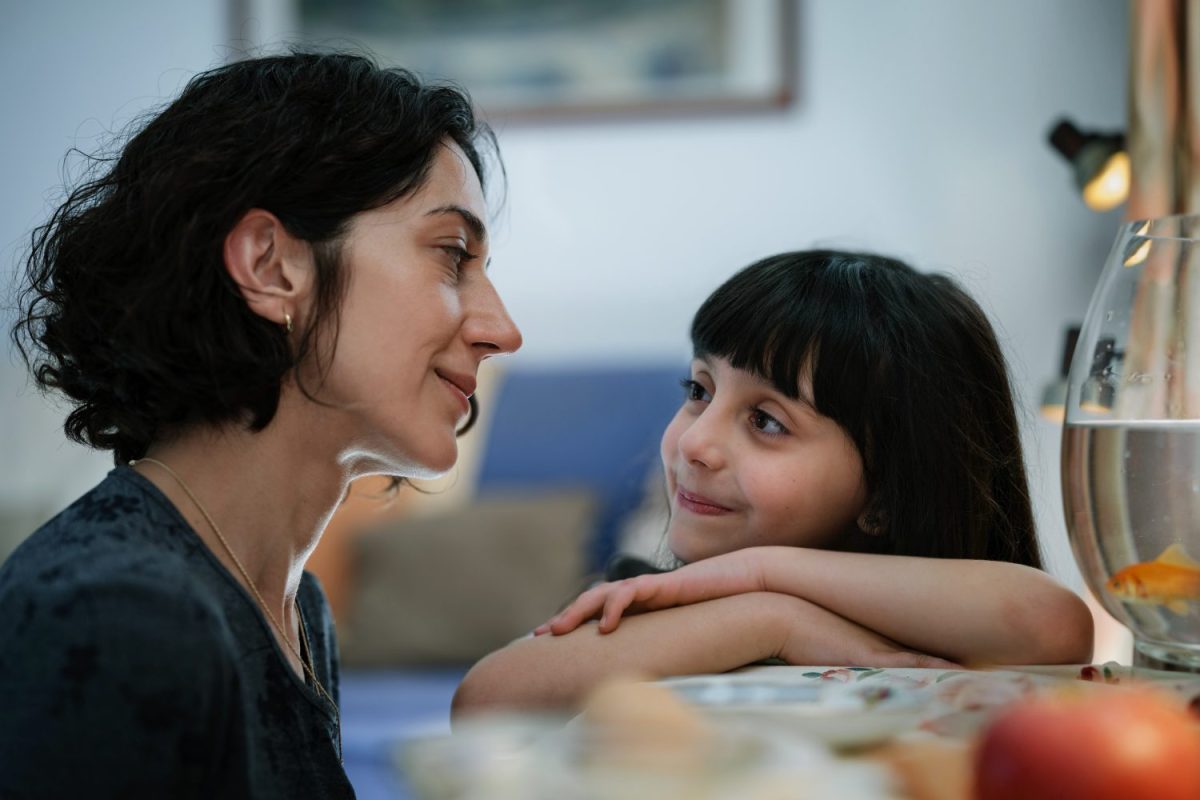by Jackie Keast IF Magazine January 23, 2023

Writer-director Noora Niasari’s Shayda has been hailed by reviewers at the Sundance Film Festival as a powerful, gripping and affecting debut.
Shayda premiered over the weekend in Sundance’s World Cinema Dramatic Competition, with critics making special mention of the performances of lead actress Zar Amir-Ebrahimi, who won best actress at last year’s Cannes for Holy Spider, Osamah Sami, and young newcomer Selina Zahednia.
Inspired by Niasari’s own childhood, Shayda is set in 1995 and follows a young Iranian mother (Amir-Ebrahimi in the titular role) who finds refuge with her six-year-old daughter Mona (Zahednia) in an Australian women’s shelter during the two weeks of Iranian New Year (Nowrooz).
Aided by the strong community of women at the refuge, they seek their freedom in this new world of possibilities, only to find themselves facing the violence they tried so hard to escape – namely Hossein, Shayda’s domineering and abusive husband (Sami), who seeks to be reunited with his daughter.
Vincent Sheehan produced Shayda through his new production venture Origma 45, with Dirty Films’ Cate Blanchett, Andrew Upton and Coco Francini the execuitve producers.
Writing for Screen Daily, Tim Grierson said that strong reviews, Blanchett as an EP, and the growing global awareness of the women’s rights movement in Iran “should help spark interest” in the Australian drama.
He noted a “palpable sense of dread hangs heavy over the film”, as the audience waits for the inevitable moment that Shayda’s husband will seek to separate her from her child.
“A story like this could lend itself to manipulative melodrama, but Niasari gives the material a pared-down simplicity, resisting big emotional twists or forced dramatic stakes. The muted approach only adds to the taut mood: Shayda is such a vivid presence that we keep fearing the moment when her resilient buoyancy may be destroyed by Hossein,” he wrote.
“Shayda is a tale of a woman who chooses hope over fear, which is all the more inspiring because the film shows us the many reasons why she should be afraid.”
In Variety, Tomris Laffly praised Ebrahimi’s “deceptively simple, even regal” performance, as she conveys her character’s “internalized battles through understated moments with nothing more than a delicate look or a pregnant silence.”
“Equally impressive are Zahednia as the wordlessly traumatized Mona — Niasari clearly has a special way with child actors — and Sami, a villain both blood-curdling and disturbingly familiar. The greatest asset of Shayda, however, is its unmistakably feminine spirit of perseverance, one that runs wild and free in this promising debut,” she wrote.
While conceding the film may skew towards the predictable at times, Laffly counters that this is as “the male abuser’s playbook is often predictable too”. She described Niasari’s filmmaking style as carrying “traces of a documentarian’s off-the-cuff alertness, braiding it with qualities akin to a thriller”.
“Through DP Sherwin Akbarzadeh’s fluid and immersive camera movements, the film’s opening is a perfect example of this verité-style intensity,” she wrote.
In The Hollywood Reporter, Shari Linden similarly commended the “quiet ferocity” of Amir-Ebrahimi’s performance and her chemistry with Zahednia.
“Amir Ebrahimi…. [is] quietly riveting, embodying a refusal to retreat into prescribed roles. And Sami, in what might have been a merely thankless, one-note part, makes the sanctimonious Hossein both monstrous and pathetic, overwhelmed by the threat he perceives in Shayda’s strength,” she wrote.
Linden also praised Niasari and Akbarzadeh’s collaboration, and the editing of Elika Rezaee.
“Throughout the film, Niasari and cinematographer Sherwin Akbarzadeh move the action between a realm of the secretive and fraught and one of brightness and play,” she wrote.
Shayda received major production investment from Screen Australia in association with The 51 Fund and was financed with support from VicScreen and the Melbourne International Film Festival Premiere Fund.
Executive producers from the 51 Fund, which provides financing to feature films of any genre that are directed by women, include Caitlin Gold, Lindsay Lanzillotta, Naomi McDougall Jones, Lois Scott, and Nivedita Kulkarni.
Madman is handling distribution in ANZ.